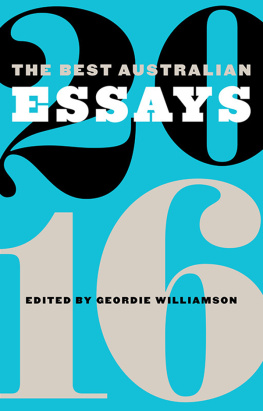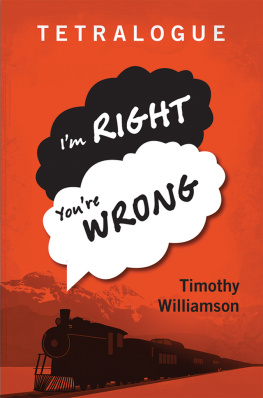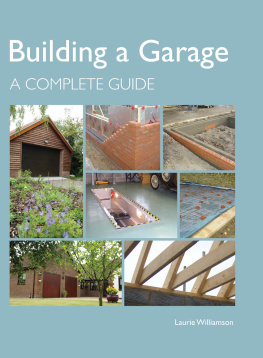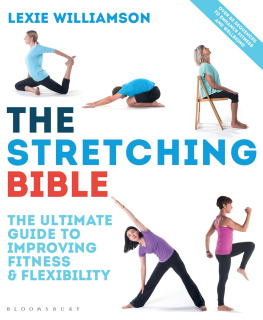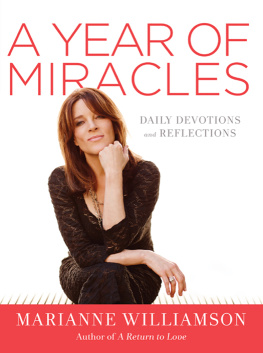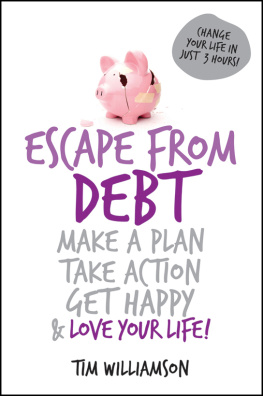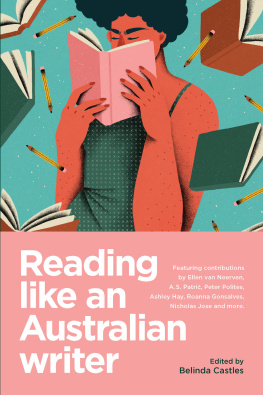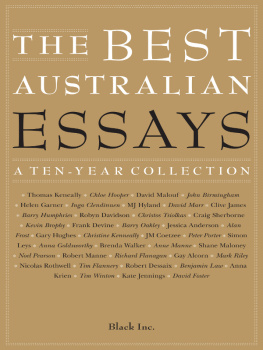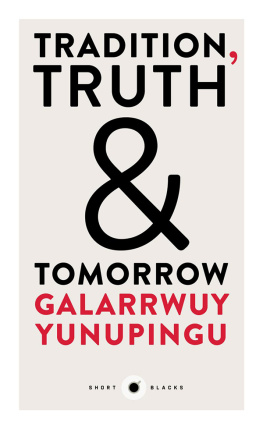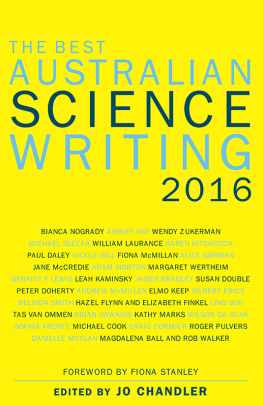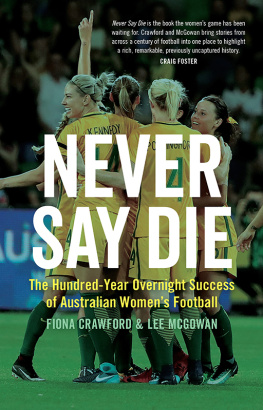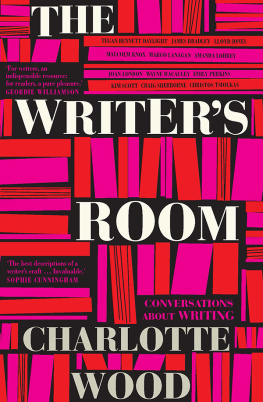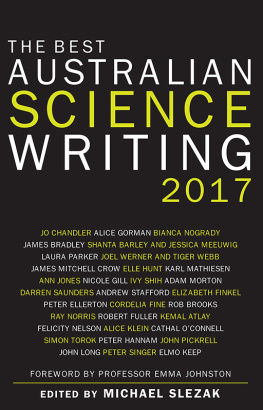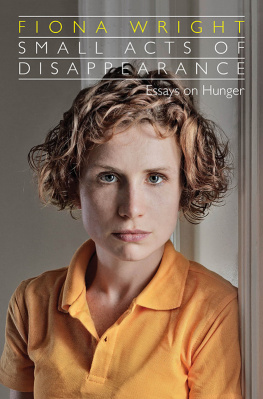Introduction
Last year, not long after Best Australian Essays 2015 went to print, I travelled to Far North Queensland with my family. We had been away for months in South America for a research trip and my wife was keen to see her mother and stepfather, who had semi-retired to Port Douglas years before.
This adventurous couple spent most of their time on the Great Barrier Reef. And for the first time, our children were old enough to come along on their boat and dive. After sailing north we anchored and chugged out in a dinghy to where the water fizzed white over the coral. I trod water above a multitude of colours and held my daughter as she looked through goggles at a brilliancy below: the coral, the fish! Her almost weightless body wriggled delightedly at the sight. We could only spend a brief time in the water the kids tired easily, or we tired holding onto them but it was a more precious experience for the sharing of it.
Three months later, that same stretch of reef was gone: killed by a bleaching event of an extremity without precedent in the Great Barrier Reefs 8000-year history. Thanks to human activity, the largest living structure on the planet had begun to die. If, as scientists suggest, oceans continue to warm, such bleaching events will become commonplace. They will come so often and with such intensity that the reef will be unable to recover. It is neither alarmism nor surmise, but a fact: my childrens children will not see the reef as we did that day.
That Australias largest environmental disaster should unfold during an election year without becoming a subject of the utmost priority is a mystery that will become a tragedy over time. If there is a common element to the essays contained within the anthology this year, it is this: a sense that our elected representatives no longer represent our best and noblest impulses as a democratic populace. Instead, they obey vested interests; that, or pander to our baser instincts, our fears, our hatred, our greed.
As I type these words, the Guardian announces that the Queensland government has declared Adanis Carmichael mine critical infrastructure. In other words, the states politicians have declared that the creation of the largest coal mine in the world on the very edge of the Reef a mine whose product would singlehandedly produce more annual carbon emissions than New York City as a project essential to [the] states economic and community wellbeing. This is news that makes the inclusion of balanced, fine-grained reportage, such as Jo Chandlers superb Grave Barrier Reef, more than an aesthetic response to fine writing. It is a monument of rational resistance to an insane world.
Asylum seekers and Australias bipartisan policy of offshore detention is another flashpoint issue where human decency is at odds with political fiat. Take Julian Burnsides piece from the Conversation, adapted from his 2015 Hamer Oration, and worth quoting at length:
Like most of you, I am aware that Donald Horne was speaking ironically when he wrote of Australia as the lucky country. But in most important ways, compared with the boat people who try to reach safety in Australia, we are indeed lucky. Over the past fifteen years, 94 per cent of boat people have been assessed, by us, as refugees genuinely fleeing the fear of persecution. In Australia, most members of the community never have to fear persecution; never have to fear for the late night knock on the door; never have to fear for their human rights.
But it is all because of the play of chance. Imagine for a moment that you are a Hazara from Afghanistan. You have fled your country and you have come down the northwest corridor through Malaysia and Indonesia. You can travel through both of those countries because they give you a one-month visa on arrival. While you are in Indonesia you can go to the UNHCR office in Jakarta and apply for refugee status. If you are a Hazara from Afghanistan, you will almost certainly be assessed as a refugee. But when your one-month visa expires, you have to hide because if you are found by the police, they will jail you. You cannot work because if you work you will be found and then you will be jailed. You cannot send your children to school because if you do you will be found and then you will be jailed. If the UNHCR has assessed you as a refugee, you can wait patiently in the shadows until some country offers to resettle you. That may take twenty or thirty years.
Now, for just one minute, imagine that chance has put you in that position: you are that person. Will you wait in the shadows for twenty or thirty years or will you take your courage in both hands and get on a boat? I have never met an Australian who would not get on the boat. Its a very strange thing that we criticise, revile and punish those who do precisely what we would do if by chance we had not the luck to belong to this country.
The virtue of essays such as Burnsides lies in their forensic rhetoric. His words cut through the blubber of tabloid journalism and shock-jock ranting and return us to the sinew and bone of our situation: the lucky few who have preserved our freedoms and our wealth by militarising our borders and imprisoning human beings in conditions that amount to mental and physical torture. If that sounds too over the top, I turn your attention to the Kurdish-Iranian journalist and writer Behrouz Boochanis account of his time on Manus in these pages. Or to Booker Prizewinning novelist Richard Flanagans long-form essay recounting the stories of those who have fled war only to lose their children in the waters of the Mediterranean.
Indeed, the edge of urgency or outrage in the assembled essays feels keener this year. Whether it is Jennifer Mills reporting from the ruins of Detroit on the urban vampirism of neoliberal economics, or Guy Rundle tracing fresh mutations of modern terrorism, the feeling that events have accelerated, have slipped beyond our ability to grasp them in a manner that permits understanding and situating in some stable contextual space, grows apace. I have written before of the way in which the essay creates a place for slow thought on hectic subjects, and that is what the best of this years crop manage to do. That said, it is almost a relief to turn from the more overtly polemical or political pieces here to those concerned with literature and the arts. Peter Goldsworthys measured reverence for Peter Porters final volume of poetry, for instance, savourable for its quotations alone:
Without a home, one made of current comforts
And loving faces, forgetting
Becomes impossible.
Or the aching blend of personal experience and music criticism from which Anwen Crawford constructs her piece on cult band Broadcast (one of several pieces I commissioned for the anthology while editing Island magazine), worth reading in tandem with James Bradleys full-throated elegy for the late, great David Bowie. Meanwhile, J.M. Coetzees introduction to a Spanish-language edition of Ford Madox Fords The Good Soldier stands alone, an exemplary island of scholarship designed for a broad public audience.
Yet the grief on display in many of these pieces tends to fold them back into the wider concerns of the anthology. Even the personal essays among them partake of a sense of loss and yearning. Mireille Juchaus elegant and clear-eyed recollection of her Jewish grandmother in The Most Holy Object in the House, for example. And every proud assertion of familial virtue in Galarrwuy Yunupingus essay Rom Watangu is shadowed by a necessary corollary: each word admits a larger social and cultural forfeit. Even the domestic filigree of memoirist Maggie MacKellars piece on a visiting Willie Wagtail and her fathers death carries an outsized charge of sadness:

